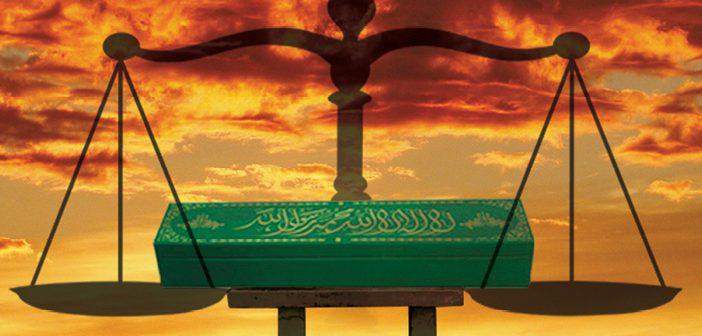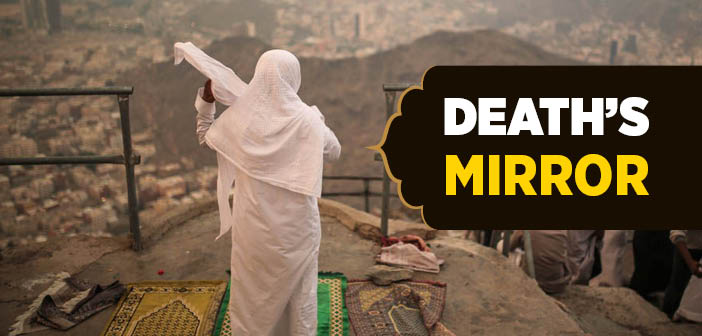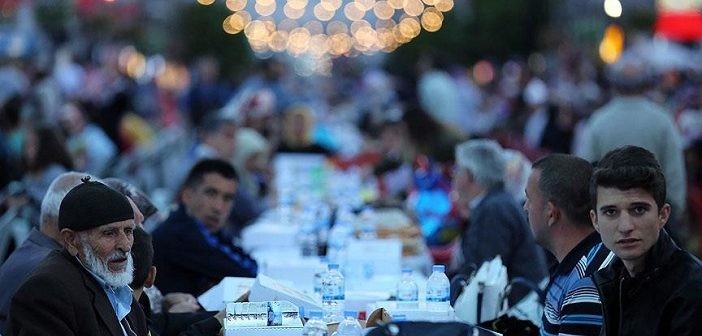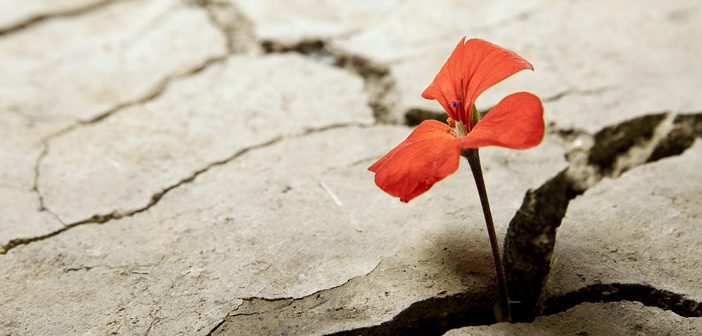
Belief in The Afterlife
What is the belief in the afterlife in islam? What is the afterlife in islam?
People in the modern world spend a great deal of energy and money on research into ways of living longer. In the Next World, however, no one will be concerned with this and the only worry for people there will be the extent to which they turned their worldly life, which is as short as the time it takes for night to fall when compared with the afterlife.
One of the fundamental tenets of Islamic belief is belief in the Next Life and it is mentioned alongside belief in Allah in many verses of the Qur'an, indicating its importance.
Some of these Qur'anic verses are the following:
"…All who believe in Allah and the Last Day and act rightly, will have their reward with their Lord. They will fell no fear and will know no sorrow." (Al-Baqara, 2:62)
"If you have a dispute about something, refer it back to Allah and His Messenger, if you believe in Allah and the last day. That is the best thing to do and gives the best result." (An-Nisa, 4:59)
"You will not find people who believe in the Allah and the Last Day having love for anyone who deposes Allah and His Messenger, though they be their fathers, their sons, their brothers or their clan" (Al-Mujadila, 58:22)
Again, in praise of the believers, Allah, glory be to Him, declares:
"Those who believe in Allah and the Last Day." (At-Tawba, 9:44)
It is not possible to come to terms with the enormous reality of death and the afterlife with mere reason and intellect alone. Human beings are greatly in need of the guidance of divine revelation. And Allah the Almighty has not left His servants without help and guidance in this matter. Throughout the Qur'an there is a frequently reoccurring theme mentioning the situation of people after death, occasionally with explicit proofs and sometimes through examples, awakening the hearts to this great matter of the Next World which we will all enter after death.
Indeed, this is the wisdom behind the revelation of Qur'anic verses of this kind characterising the early years of the Messenger's mission which stressed the essentials of belief in Allah and all the various elements of the unseen world which is veiled from our eyes. This is also the wisdom behind the repeated mention of these matters again after the Hijra (emigration) to Madinah, in revelations containing legal rulings concerning both worship and worldly matters. One of the most striking causes of corruption characterising the age of ignorance is a denial of the afterlife.
Denial of the existence of an afterlife is illogical and unreasonable. Just consider:
In a play, for instance, the curtain never drops after the first act, without a final moment of closure being reached. What would the audience think in such a case with their thoughts stirred and suspense built up, intent on learning the final outcome of the play and the motivation of the playwright? Even a child would not consider it appropriate to finish a play in this way. Why then would Allah, who created everything with a purpose and who possesses full knowledge of all things, end this grand narrative of the universe in a manner that is illogical even to a child?[1]
In other words, reason also necessitates that human beings, who claim at every opportunity that they live in a world of causes, believe in a Next Life in which they will see the effects of these causes.
It is declared in a Qur'anic verse:
"Those who are disbelievers say, ‘The hour will never come.’ Say: ‘Yes, by my Lord, it certainly will come!’ He is the Knower of the Unseen, Whom not even the weight of a single particle eludes, either in the heavens or in the earth; nor is there anything smaller or larger than that which is not in a Clear Book." (Saba’, 34:3).
"Allah, there is no god but Him. He will gather you to the Day of Rising about which there is no doubt. And whose speech could be truer than Allah’s?" (An-Nisa’, 4:87)
"He asks: ‘so when is the Day of Rising?’
But when the eyesight is dazzled, and the moon is eclipsed, and the sun and moon are fused together, on that Day man will say, ‘Where can I run?’ No indeed! There will be no safe place. That Day the only resting place will be your Lord. That Day man will be told what he did and failed to do." (Al-Qiyama75:6-13)
"Say: ‘Allah gives you life, then causes you to die, and then will gather you together on the Day of Rising about which there is no doubt. But most people do not know it.
The kingdom of the heavens and earth belongs to Allah, and on the Day that the Hour arrives, that Day the liars will be lost." (Al-Jathiyya, 45:26-27)
"Say: ‘It would not matter if you were rock or iron or indeed any created thing that you think is harder still!’ They will say, ‘Who will bring us back again?’ Say: ‘He who brought you into being in the first place.’ They will shake their heads at you and ask, ‘When will it happen?’ Say: ‘It may well be that it is very near." (Al-Isra’, 17:50-51).
So, this world is like a large room with two doors, one at each end and has seen countless people pass through one door and out the other since the time of Prophet Adam (peace be upon him). So where are they now? Or where will we be after a certain time? Does anybody know? This is the unknown. But one thing is for certain: death will surely come to both the oppressors and the oppressed, to the devout and to the neglectful and everybody will wait for the resurrection that is the beginning phase of the eternal life.
If we think about it, the soil on which we tread is filled with the dust of the billions of people who have lived on earth. Like billions of overlapping shadows. Tomorrow, we too will be buried in that same soil, along with our deeds and will fade away into this dark shadow and an everlasting journey will begin. Since there is no escaping it, we should stop for a moment and think.
[1] Muhammad Sa'id Ramadan al-Buti, Kubra al-Yaqiniyyat al-Kawniyya, 180.
Source: Osman Nuri Topbaş , Journey To Eternity, Erkam Publications
Dying as Muslims

Death’s Mirror













